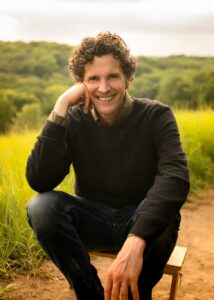 by with Matthew Rezac, MPS
by with Matthew Rezac, MPS
Facilitator of:
The Art of Engaged Mindfulness: Settling the Mind for Intuition to Emerge
Group Coaching: Unleashing the Transformative Potential of Community
Is mindfulness more about acceptance or change?
This is a thorny question.
I’ve encountered some people who say mindfulness is all about acceptance. To them, the essence of mindfulness is being fully and truly present with “what is,” without any need to change it. It’s an antidote to our striving, doing-focused culture of accomplishment. The goal is to extinguish all grasping.
They point to teachers like Jon Kabat-Zinn, who famously said, Mindfulness is awareness that arises through paying attention, on purpose, in the present moment, non-judgmentally.
Others see mindfulness as a way to unlock behavior change. It allows people to become aware of internal patterns that were unconscious habits. Once they can see these patterns, they can change them. Mindfulness has helped people create a wide range of changes to personal health including smoking cessation, lower stress levels, and decreased depression symptoms.
A 2020 article in the Harvard Review of Psychology found that
A growing body of evidence suggests that mindfulness-based interventions (MBIs) are effective in reducing harmful health behaviors, catalyzing chronic disease selfmanagement and health behavior change, and improving physical and mental health outcomes.*
While acknowledging these benefits, those who hold the “acceptance” position might suggest there’s a paradox at play. Once you cross the line and are trying to change yourself, you’re not really practicing mindfulness.
The tension between acceptance and change is especially relevant for those of us in Mindfulness Coaching School community. After all, as coaches, we want to help people “forward the action” and make meaningful,
concrete improvements in their lives. We are predisposed toward action and change. As mindfulness practitioners, we are leery of the always-busy, hamster-wheel lifestyle. We know even self-development can be a way to avoid giving reality our unconditional, loving presence.
I suspect that mindfulness is really about both. It’s about engaging the world skillfully (wise action) from an inner place of spacious, open-hearted awareness. It requires both deep selfacceptance and insightful social awareness. Mindfulness is a practice for cultivating this way of relating with oneself and one’s world.
How do you know when acceptance is what the moment calls for? Or when to focus on becoming something new? In the Art of Engaged Mindfulness, we live into these questions, helping one another build the capacity for mindful engagement with ourselves, our clients, and the world we live in. The tension between acceptance and change is a place of both insight and creativity.
* Schuman-Olivier, Z., Trombka, M., Lovas, D. A., Brewer, J. A., Vago, D. R., Gawande, R., … & 1 Dunne, J. P. (2020). Mindfulness and behavior change. Harvard review of psychiatry, 28(6), 371-394.





0 Comments